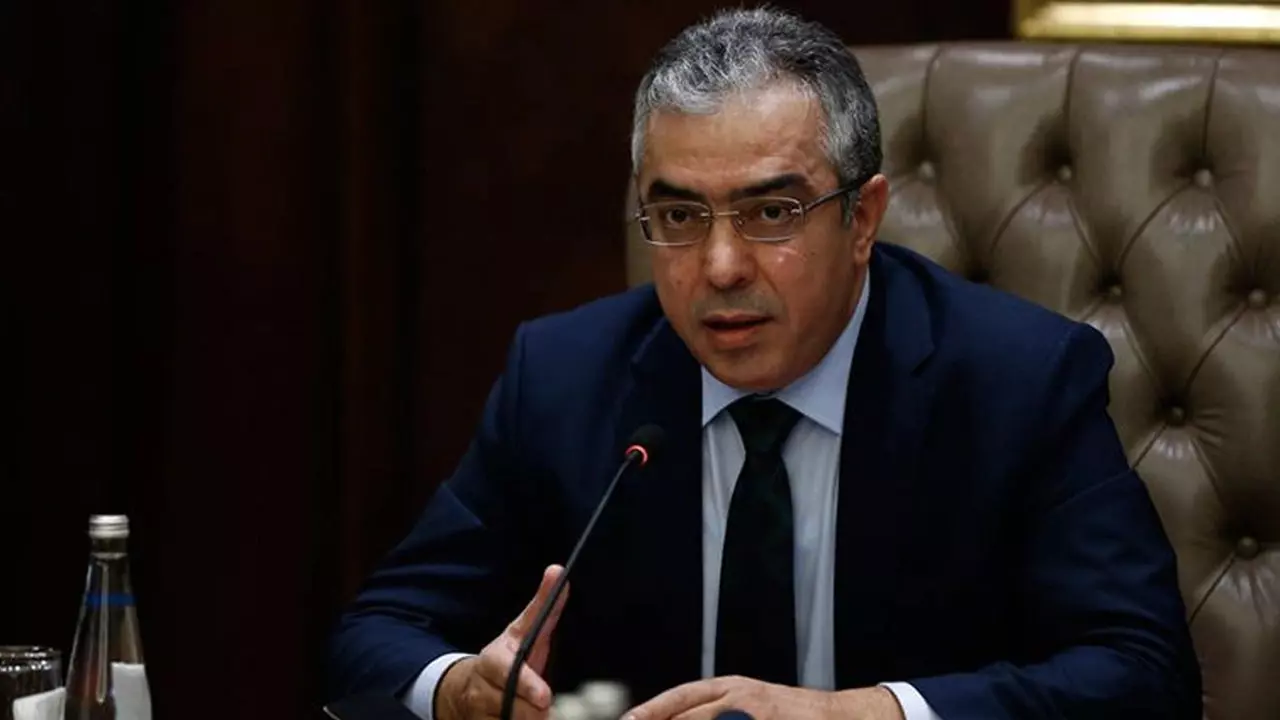'Kurds a Founding, Essential Component of Turkish Nation,' Top Erdoğan Advisor
"Terror-Free Türkiye is not the end; it is a new start [...] Our foundational process will be completed through inclusive reforms, beginning with a new constitution, following the transition to a Terror-Free Türkiye," Mehmet Uçum noted.

By Kamaran Aziz
ERBIL (Kurdistan24) — In a statement on X, Mehmet Uçum, Chief Advisor to the Turkish President and Deputy Chairman of the Presidential Legal Policy Board, declared that the vision of a “Terror-Free Türkiye” is no longer an aspiration but a reality taking form. His remarks, deeply anchored in both nationalist rhetoric and constitutional references, placed a striking emphasis on the role of Kurds within the Turkish state, framing them not as a minority but as foundational stakeholders in the Republic of Türkiye.
"Achieving a Terror-Free Türkiye and realizing the 'Century of Türkiye' is both a national duty and a moral obligation to honor the memory of our martyrs who died for the indivisibility of the homeland," Uçum proclaimed.
According to Uçum, the transformation is being driven by the "great leadership of President Recep Tayyip Erdoğan" and the "courageous political initiative of Nationalist Movement Party (MHP) leader Devlet Bahçeli." Together, he said, their unprecedented alliance and shared vision have laid the foundation for a state-wide policy aimed at eradicating terrorism and unifying all segments of society under the banner of national identity.
His statement comes at a time of unprecedented developments in Türkiye's decades-long Kurdish conflict. On Monday, the Kurdistan Workers’ Party (PKK) formally declared its dissolution and the cessation of all armed operations, marking what many observers describe as a historic turn in one of the region's most entrenched and violent insurgencies.
The PKK's 12th Congress, held from May 5 to 7 under the guidance of imprisoned leader Abdullah Öcalan, concluded with a decision to dismantle the group’s organizational structure. "The decision, made under the leadership of Leader Apo (Abdullah Öcalan), brings an end to the armed resistance and to all activities carried out under the PKK's name," the group's statement read.
This move coincides with a high-level cabinet meeting in Ankara, chaired by President Erdoğan, where the implications of the PKK's dissolution and the possibility of a new peace process in the post-PKK era were reportedly under discussion.
Founded in 1978 and taking up arms in 1984, the PKK has waged an armed campaign against the Turkish state that has led to over 40,000 deaths and extensive displacement. Designated as a terrorist organization by Türkiye, the United States, and the European Union, the group had previously engaged in peace talks, most notably during the 2013-2015 ceasefire, which collapsed amid mutual recriminations and renewed violence.
Öcalan, despite being imprisoned on İmralı Island since 1999, remains a powerful figure among Kurds. His role in directing the PKK congress suggests a shift toward political solutions through non-military frameworks. This has opened space for speculation on renewed Kurdish-Turkish dialogue under new terms.
Omer Celik, spokesperson for the ruling Justice and Development (AK) Party, welcomed the PKK’s decision, calling it a "key step toward a terror-free Türkiye," if implemented fully. He emphasized the necessity of dismantling all affiliated and illegal branches of the group to ensure the credibility of the disarmament.
"If the new PKK decision is fully implemented, shutting down all PKK branches and illegal structures, it will be a turning point," Celik told the state-run Anadolu Agency, noting that Turkish institutions will monitor the process closely.
In the Kurdistan Region, President Nechirvan Barzani hailed the announcement as a "historic and decisive step" toward peace, urging all sides to seize the opportunity to initiate genuine dialogue. Barzani described the move as a sign of political maturity and a crucial moment for launching a durable peace process.
Against this backdrop, Uçum’s remarks gains renewed significance. He asserted that Kurds are not merely a cultural group but integral to the identity and history of the Turkish Republic. "Kurds are an essential and founding component of the Turkish Nation," he stated. "The Republic of Türkiye is also the national state of the Kurds."
Referencing Atatürk’s inclusive nationalist vision, Uçum emphasized that all ethnic and religious communities within Türkiye, including Turks, Kurds, Arabs, Alevis, Sunnis, and others, form the backbone of a unified Turkish Nation.
He characterized the recent period as not a culmination but a beginning: "Terror-Free Türkiye is not the end; it is a new start," Uçum noted. With this, he alluded to a coming phase of constitutional and democratic reform, indicating that Türkiye would move toward a new social compact grounded in law, unity, and shared identity.
"As can be seen, our foundational process—initiated with the War of Independence and confirmed with the proclamation of the Republic—will be completed through inclusive reforms, beginning with a new constitution, following the transition to a Terror-Free Türkiye," he wrote.
Uçum concluded by celebrating the broad political consensus and public support behind the state’s initiative.
Observers remain cautiously optimistic about what comes next. While the disarmament of the PKK signals a possible end to armed conflict, many await structural changes—in governance, rights recognition, and cultural inclusion—to determine whether this will indeed be a turning point in resolving the Kurdish question in Türkiye.
